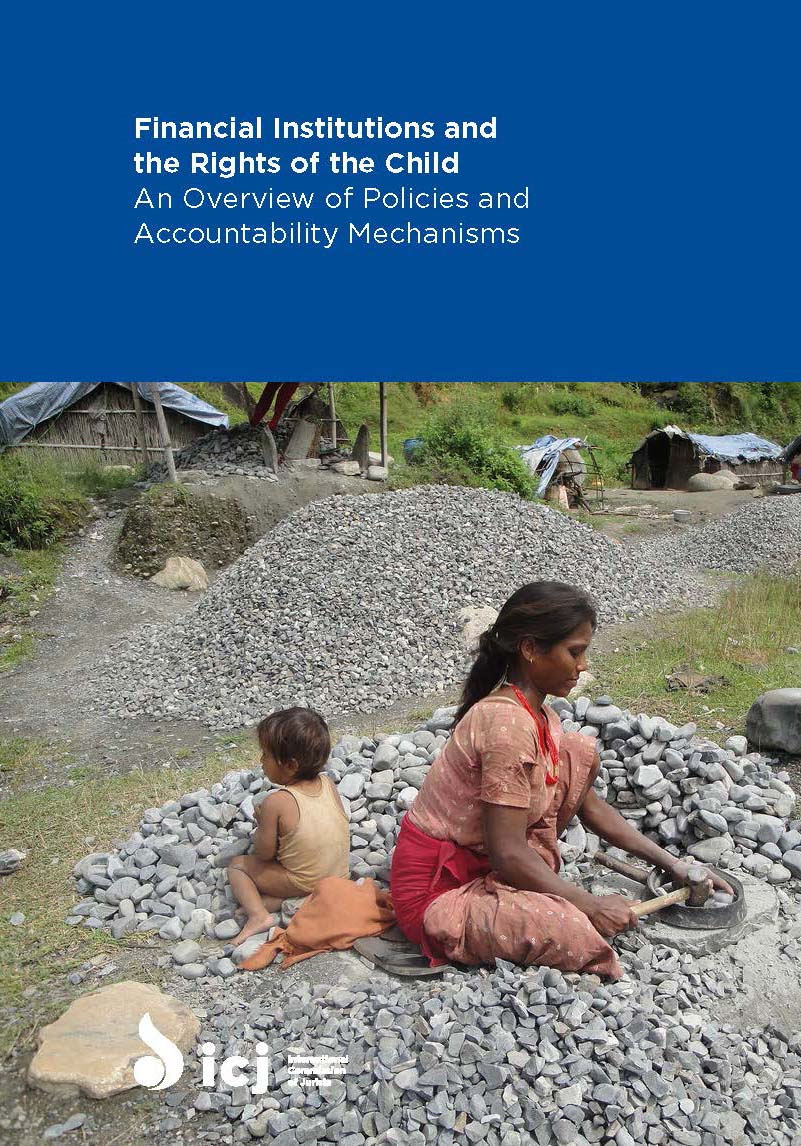The conduct of international financial institutions (IFIS) often has a substantial, sometimes adverse, impact on the enjoyment of human rights of persons affected directly or indirectly by their activities.
The rights of the child, like other human rights, may be affected by the activities of IFIs, for instance by the use of child labour or forced labour, or the generation of displacement of communities to make way for economic projects funded by a development bank or a similar institution.
Recent international developments in the field of business and human rights have highlighted this impact.
In February 2013 the Committee on the Rights of the Child adopted General Comment No. 16 on State obligations regarding the impact of the business sector on children’s rights, which includes a section on International Organizations.
According to the Committee, both States and international organizations have responsibilities under the Convention on the Rights of the Child:
- States “must comply with their obligations under the CRC [Convention on the Rights of the Child] and its protocols when acting as members of such organizations and they should not accept loans from international organizations, or agree to conditions set forth by such organizations, if these loans or policies are likely to result in violations of the rights of children” (para. 47)
- “International organizations should have standards and procedures to assess the risk of harm to children in conjunction with new projects and to take measures to mitigate risks of such harm” as well as “put in place procedures and mechanisms to identify, address and remedy violations of children’s rights in accordance with existing international standards including when they are committed by or result from activities of businesses linked to or funded by them.”(para. 48)
The present report, Financial institutions and the rights of the child, carries out an overview of policies and accountability mechanisms of several financial and development institutions with a view to ascertaining the extent to which they incorporate children’s rights as defined in the UN Convention on the Rights of the Child and the definitions contained in General Comment No 16 in relation to international organizations.
These institutions provide direct funding or other support to private and public economic projects around the world and are therefore a key factor in determining the economic feasibility of such projects.
The financial institutions covered include such international institutions as the World Bank Group, regional, the Asian Development Bank and other regional institutions, and national institutions such as the German development banks.
The report concludes that notwithstanding their obligations under international human rights law, States’ incorporation of human rights as part of the operational policies and practices of their financial institutions remains deficient.
Multilateral financial institutions have a different dynamic and their policies respond not to one State’s priorities but to those of several States.
But here again the level of uptake of international standards in the field of children’s rights is varied. While explicit references to children’s rights are scarce in the wider field of international development finance, recent progress at the international level suggest that there is growing concern about the impacts of financial institutions and the projects they fund on the enjoyment of the rights of the child.
The overview of policies and accountability mechanisms provided in this report shows that although there is some progress in the incorporation of standards on the rights of the child more need to be done.
The existing opportunities identified at the end of each entry, can be effectively used to operate some changes.
In this regard, the ICJ recommends that States take action to ensure that no project, in its design and implementation, contravenes the human rights standards relative to the obligations of member states of the international institution or of the State of any national institutions, including those arising under the Convention on the Rights on the Child and other core human rights treaties.
The report is intended to inform a growing but relatively unaware group of human rights defenders, especially those who focus on the rights of the child, with a view to facilitating their advocacy efforts.
To that end, each section ends with a brief identification of opportunities, if any, for action to improve policies and procedures within those institutions and ensure better respect for children’s rights in their operations.
Financial institutions and rights of child-Publications-reports-2014 (full text in pdf)
This report was produced with the support of the OAK Foundation.
Cover photo: FIAN Nepal

